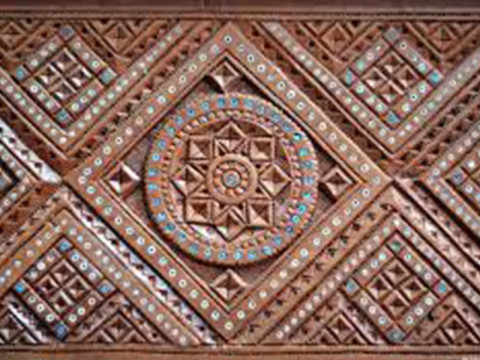Hutsul carving is flat. Its main technique that is
used – shallow notches.
Depending on the nature of the notched grooves, there
are four types of carving that can be distinguished.
Contoured carving or engraving – the type when shallow and rather narrow grooves are applied to wood.
Cross-hatching, circles, ladders and many others are
used to depict ancient motifs.
Trihedral notched carving – trihedral grooved-pyramids are notched on the surface of the wood. The facets of the triangles with different inclination to the light create so called "game" of light and shade. For ornamental motifs: teeth, four-sided recesses, three-sided pits.
Nail-shaped carving consists of notches in the shape of a nail, creating ornamental motifs such as fences, teardrops, etc.
Carving of flat terrain on a selected speckled background, include stylized depiction of plants, animals, people, as well as depictions of coats of arms, emblems, stars and more.
Various tools are used for carving – incisors, chisels
and others (there are about 50 of them).
Encrustation with multi-coloured wood (of natural
shades and dyed), pearlescent, coloured metal, decorative wire, colourful beads
and horn is also common practice.
Hutsul carved ornament is noted for accuracy,
graphic design of geometrical shapes, and precision of execution.

